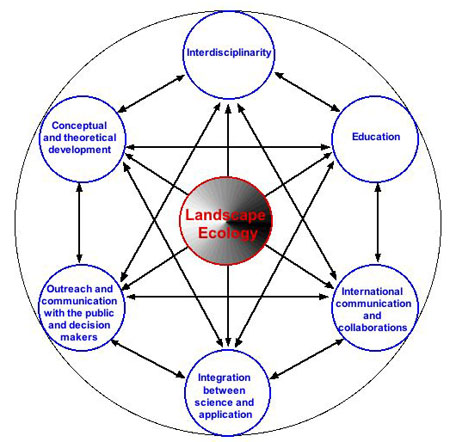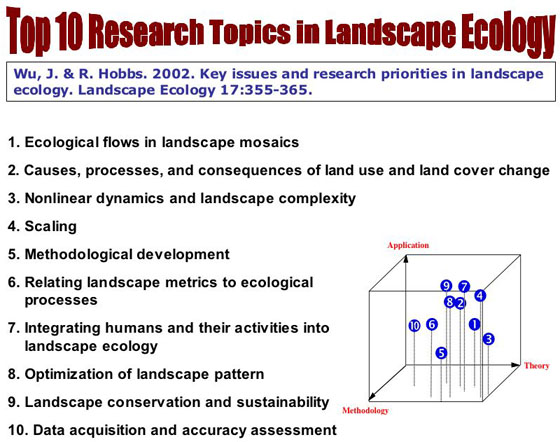BIO 421/521
Landscape
Ecology
Instructor
Dr.
Jianguo (Jingle) Wu
Dean's
Distinguished Professor
of
Landscape Ecology and Sustainability Science
School of Life Sciences and Global Institute of Sustainability
Arizona State University
P.O. Box 874501, Tempe, AZ 85287-4501
Ph: (480) 965-1063 Fax: (480) 965-6899
http://LEML.asu.edu/Jingle/
PREREQUISITES:
BIO 320 or
instructor's
approval.
COURSE LEVEL
AND
CREDITS:
For
undergraduate and
graduate
students; three (3) credit hours, one semester.
RECOMMENDED BOOKS:
Wu, J. and
R. Hobbs (eds.) 2007. Key Topics in
Landscape Ecology.
Cambridge University Press, Cambridge, UK.
Turner,
M. G.,
Gardner,
R. H. and O'Neill, R. V. 2001. Landscape
Ecology in Theory and
Practice:
Pattern and Process. Springer-Verlag, New York.
What
Is Landscape Ecology, Really?
Landscape ecology is the study of
interactions between spatial pattern and ecological processes on a wide
range of scales, and represents a new ecological paradigm
characterized by spatial explicitness, scale multiplicity, and
transdisciplinarity. The
key topics in landscape ecology include:
spatial heterogeneity, pattern-process-scale relationships, spatial
scaling, human-land interactions, and landscape sustainability.
Landscape ecology provides an integrative theoretical basis and a
suite of technical tools for understanding biophysical and
socioeconomic phenomena in various landscapes, as well as for
biodiversity conservation, ecosystem management, landscape planning and
design, and sustainability science.
Wu, J. and R.
Hobbs. 2002. Key issues and
research priorities in landscape ecology.
Landscape Ecology 17:355-365.
Wu, J. 2006. Cross-disciplinarity,
landscape ecology, and sustainability science. Landscape Ecology
21:1-4.



